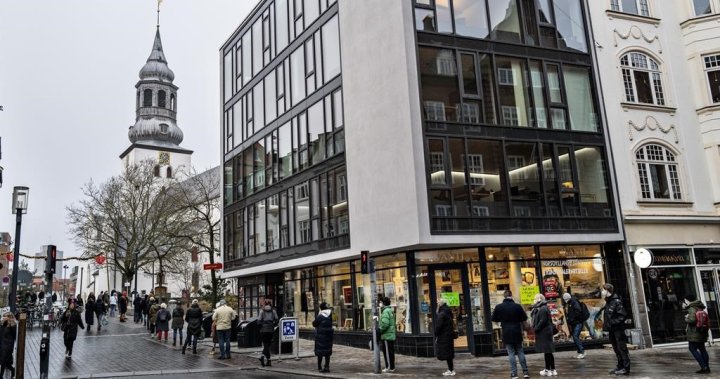
Denmark scraps COVID restrictions, says virus no longer ‘a socially critical disease’
Global News
While the Omicron variant is surging in Denmark, it's not placing a heavy burden on the health system and the country has a high vaccination rate, officials have said.
Denmark on Tuesday became one of the first European Union countries to scrap most pandemic restrictions as the Scandinavian country no longer considers the COVID-19 outbreak “a socially critical disease.”
The reason for that is that while the Omicron variant is surging in Denmark, it’s not placing a heavy burden on the health system and the country has a high vaccination rate, officials have said.
Prime Minister Mette Frederiksen told Danish radio it’s too early to know if measures may have to make a comeback.
“I dare not say that it is a final goodbye to restrictions,” she said. “We do not know what will happen in the fall. Whether there will be a new variant.”
Denmark, a nation of 5.8 million, has in recent weeks seen more than 50,000 daily cases on average while the number of people in hospital intensive care units has dropped.
Other EU countries also are relaxing measures. Ireland dropped most of its restrictions and the Netherlands also has been easing its lockdown, though Dutch bars and restaurants still have to close their doors at 10 p.m.
The head of the Danish Health Authority, S?ren Brostr?m, told Danish broadcaster TV2 that his attention was on the number of people in ICUs, rather than on the number of infections. He said that number had “fallen and fallen and is incredibly low.” He said 32 coronavirus patients are in ICUs. Several weeks ago, it was up at 80.
The most visible restriction disappearing is the wearing of face masks, which are no longer mandatory on public transportation, shops and for standing clients in restaurant indoor areas. Authorities only recommend mask use in hospitals, health care facilities and nursing homes.

